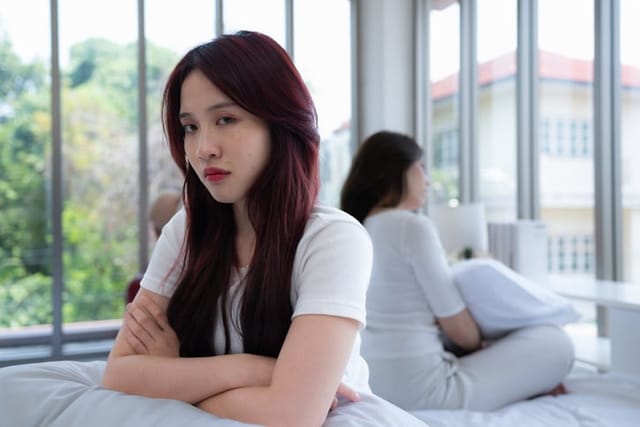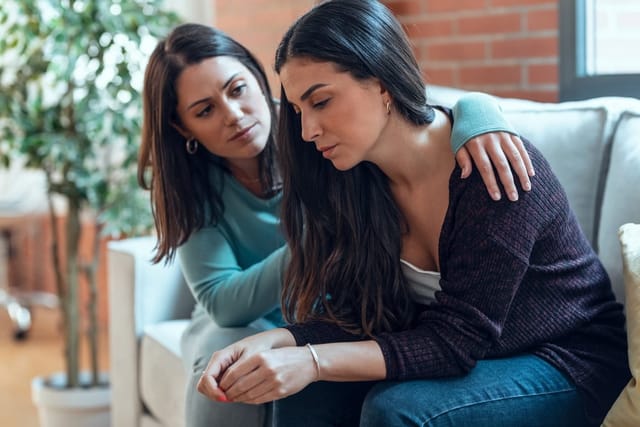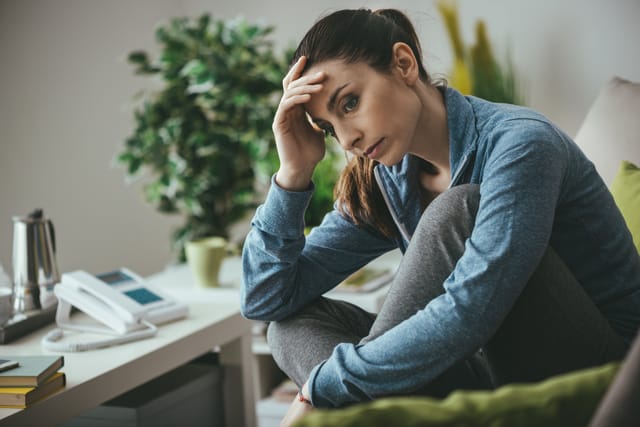Being alone is a natural part of life, but for some, the mere thought of solitude comes with feelings of anxiety and fear. While these individuals may appear confident and outgoing on the surface, there are subtle habits that betray their underlying fear of being alone. This fear drives how they operate in their social lives and romantic relationships and can ultimately hold them back from true happiness. If you recognize any of these habits in yourself, it may be time to take a deeper look at why you don’t want to be alone—and maybe even try facing your fears.
1. They’re constantly seeking validation.
Instead of finding confidence in themselves and their worth from within, some people seek constant validation from others. Whether it’s seeking approval on social media or always needing praise from colleagues, their reliance on external validation means being alone would leave a void they wouldn’t know how to fill themselves. We all need a little validation from others sometimes, but we also need to know how to function without it.
2. They say yes to every social event.

Booked and busy is the ultimate goal for people who are afraid of being alone. They fill their schedules with social events and gatherings, often to the point of exhaustion so they never have to slow down or spend time without a crowd of people around them. They’d much rather be running from event to event without any downtime than be confronted with their own thoughts during a night at home alone.
3. They are serial monogamists.

People who are afraid of being alone will choose the safest, most secure option every time—and to them, that’s a committed monogamous relationship. They might also have a tendency to line up a new relationship before their current one is even officially over yet because they’d never dream of ending a relationship without a backup plan in place.
4. They actively avoid alone time.

Who doesn’t love a Friday night alone with takeout and the latest binge-watch? People who are afraid of being alone, that’s who. Instead of just embracing some time to themselves, they’ll worry that spending a weekend night alone is just the beginning and avoid it at all costs. That means they’ll always go out of their way to have plans, no matter how far down the list of acquaintances they have to book.
5. They avoid self-reflection.

Instead of embracing introspection and self-reflection, those who fear being alone often avoid delving into their own thoughts and emotions. This means they’ll never confront their fears head-on and never work towards changing their habits, and the cycle will continue.
6. They stay in toxic relationships far too long.

For some people, it’s difficult to recognize that being alone is actually much better than being in a bad relationship. They’d rather deal with incompatibilities and even abuse than actually make a decision to walk away and be on their own. To them, nothing is worse than being alone, because they’ve never let themselves experience it.
7. They check their phone obsessively.

Constantly checking their phone for notifications and messages is a common habit among those who fear being alone. If they can’t be with people IRL, then they’ll settle for a virtual connection. Whether it’s texts, emails, DMs, or simply scrolling mindlessly through social media, their phone is a way to distract themselves from the discomfort of solitude.
8. They don’t know how to set—or maintain—boundaries.

Having boundaries is healthy. But people who are afraid to be alone don’t want to risk asserting their own needs to the point that they push people away. There is a balance to be found, but some people would rather just be as accommodating to others as possible. This ensures that they never have to worry about ending up with no one willing to “put up with them”.
9. They have FOMO.

People with a fear of missing out (FOMO) will never say no to an invitation, because they hate the idea that other people might do something without them. They also worry that, if they do pass on an invite, they’ll be forgotten and never invited to anything again.
10. They need constant distraction.

Since they hate being alone with their own thoughts, people who are afraid of being alone will always have the TV or radio on or a podcast playing. That way they can pretend they aren’t actually alone. They might also be workaholics, which helps them avoid any downtime that they don’t know what to do with. As long as they have a distraction, they never really have to confront feelings of loneliness.
11. They don’t enjoy solitary activities.

Someone who is afraid to be alone naturally won’t like solitary activities like reading a book or cooking a meal for one. They would never go to a coffee shop, a movie, or even shop alone unless they had to. Instead, they look for group activities whenever possible and try to always be around people. While there’s nothing wrong with being naturally extroverted, it can be a problem when they dread having to do anything by themselves.
12. They don’t have strong standards.

Someone who’s afraid to be alone is probably a lot more flexible about who they’ll go on a date with than someone who is comfortable being single. They’ll say yes to every date request, ignore all the red flags, and lower their standards just to have a warm body close. They don’t really care who is there, as long as it’s someone, and naturally that will lead to some not-so-great relationships.
13. They overanalyze social interactions.

Paranoia over whether they did something wrong, and if people like them or not, is common for people who fear being alone. They fear rejection and abandonment, so they usually just want to fit in at any cost. Instead of being themselves, they’ll be who they think others want them to be and cultivate a fake image to meet everyone else’s expectations.
14. They try to force connections.

Not everyone is going to be your best friend or the love of your life, but people who are afraid of being alone will try to manufacture a connection where none exists. While some effort has to be put in to build relationships, it shouldn’t ever feel forced.
15. They avoid emotional vulnerability.

It may sound like a contradiction but people who are afraid of being alone have a hard time opening up to others in a way that fosters genuine connections. Emotional vulnerability can be a risk, so they’ll keep their guard up and maintain a façade of strength and independence to protect themselves from potentially getting hurt. In reality, all this does is keep people at arm’s length forever.




